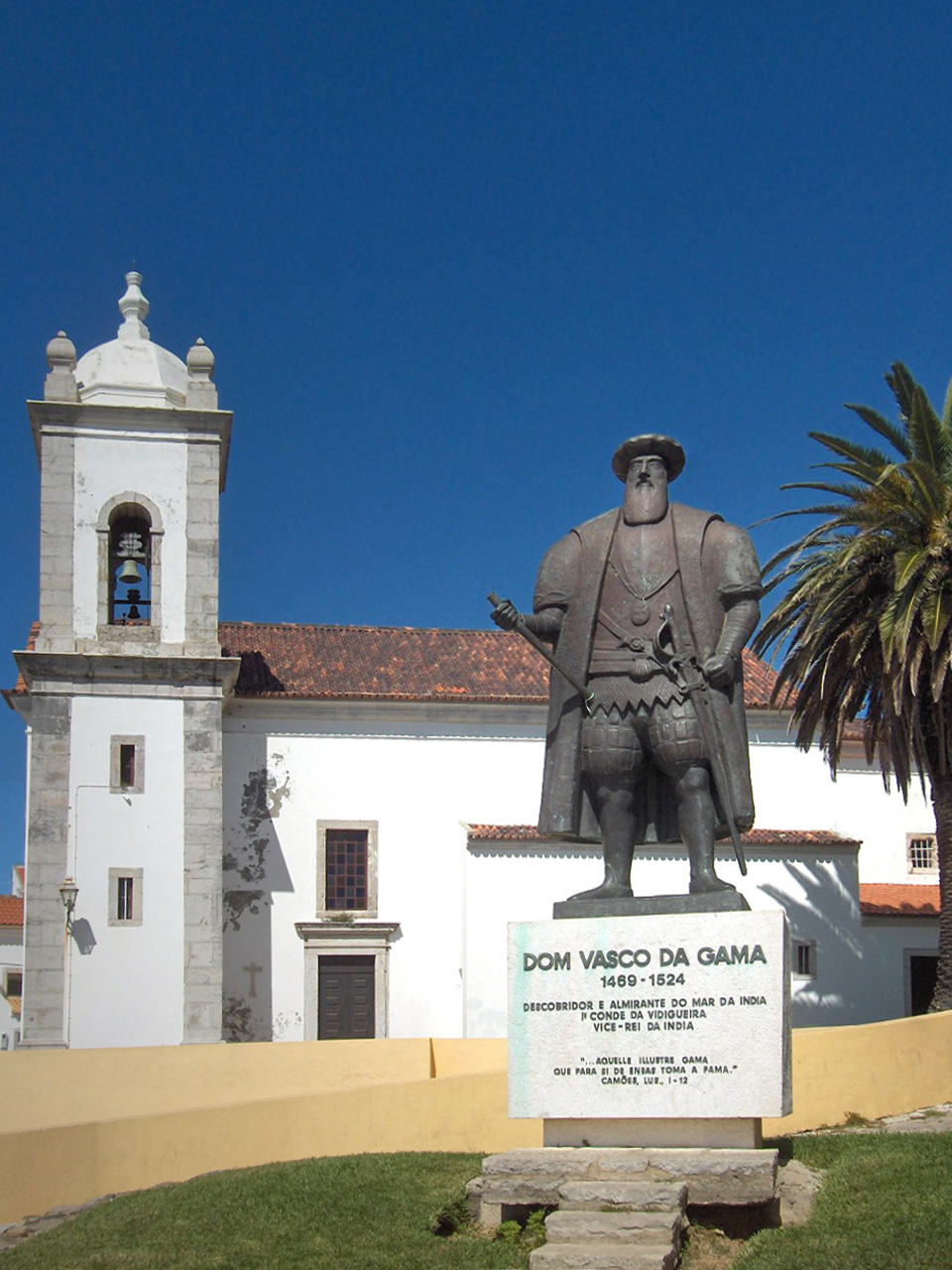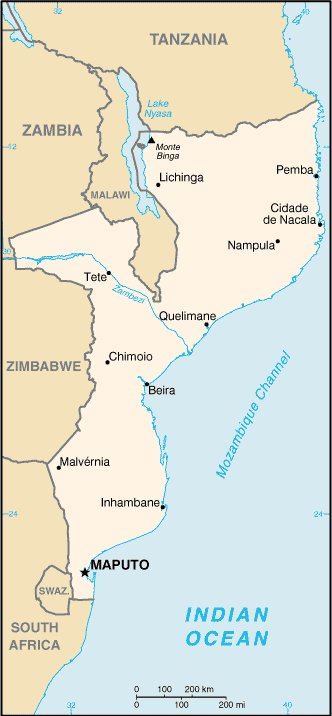|
Mozambique (Portugal)
Portuguese Mozambique () or Portuguese East Africa () were the common terms by which Mozambique was designated during the period in which it was a Portuguese Empire, Portuguese overseas province. Portuguese Mozambique originally constituted a string of Portuguese possessions along the south-east African coast, and later became a unified province, which now forms the Republic of Mozambique. Portuguese trading settlements—and later, territories—were formed along the coast and into the Zambezi basin from 1498 when Vasco da Gama first reached the Mozambican coast. Lourenço Marques (explorer), Lourenço Marques explored the area that is now Maputo Bay in 1544. The Portuguese increased efforts for occupying the interior of the colony after the Scramble for Africa, and secured political control over most of its territory in 1918, facing the resistance of some Africans during the process. Some territories in Mozambique were handed over in the late 19th century for rule by chartered ... [...More Info...] [...Related Items...] OR: [Wikipedia] [Google] [Baidu] [Amazon] |
Mozambican Escudo
The escudo was the currency of Mozambique from 1914 until 1980. It was subdivided into 100 ''centavos''. History The escudo replaced the real at a rate of 1 escudo = 1000 réis. It was equal in value to the Portuguese escudo until 1977. Initially, Mozambique had its own paper money but used Portuguese coins. Only in 1935 were coins issued specifically for use in Mozambique Mozambique, officially the Republic of Mozambique, is a country located in Southeast Africa bordered by the Indian Ocean to the east, Tanzania to the north, Malawi and Zambia to the northwest, Zimbabwe to the west, and Eswatini and South Afr .... In 1975, the metica was proposed as a replacement for the escudo, but it was not used. The escudo was replaced by the metical in 1980 at par. Coins Between 1935 and 1936, coins for 10, 20 and 50 centavos, 1, , 5 and 10 escudos, with the , 5 and 10 escudos in silver. In 1952, silver 20 escudos were issued. Between 1968 and 1971, base metal coins replaced th ... [...More Info...] [...Related Items...] OR: [Wikipedia] [Google] [Baidu] [Amazon] |
Scramble For Africa
The Scramble for Africa was the invasion, conquest, and colonialism, colonisation of most of Africa by seven Western European powers driven by the Second Industrial Revolution during the late 19th century and early 20th century in the era of "New Imperialism": Belgian colonial empire, Belgium, French colonial empire, France, German colonial empire, Germany, British Empire, United Kingdom, Italian Empire, Italy, Portuguese Empire, Portugal and Spanish Empire, Spain. In 1870, 10% of the continent was formally under European control. By 1914, this figure had risen to almost 90%; the only states retaining sovereignty were Liberia, Ethiopian Empire, Ethiopia, Egba United Government, Egba, Sultanate of Aussa, Aussa, Senusiyya, Mbunda Kingdom, Mbunda, the Dervish State, the Darfur Sultanate, and the Ovambo people#History, Ovambo kingdoms, most of which were later conquered. The 1884 Berlin Conference regulated European colonisation and trade in Africa, and is seen as emblematic of t ... [...More Info...] [...Related Items...] OR: [Wikipedia] [Google] [Baidu] [Amazon] |
Maputo Bay
Maputo () is the Capital city, capital and largest city of Mozambique. Located near the southern end of the country, it is within of the borders with Eswatini and South Africa. The city has a population of 1,088,449 (as of 2017) distributed over a land area of . The Metropolitan Maputo, Maputo metropolitan area includes the neighbouring city of Matola, and has a total population of 2,717,437. Maputo is a port city, with an economy centered on commerce. It is noted for its vibrant cultural scene and distinctive, eclectic architecture. Maputo was formerly named Lourenço Marques (; until 1976). Maputo is situated on Maputo Bay, a large natural bay on the Indian Ocean, near where the rivers Tembe, Mbuluzi, Matola and Infulene converge. The city consists of seven administrative divisions, which are each subdivided into Quarter (urban subdivision), quarters or ''bairros''. The city is surrounded by Maputo Province, but is administered as a self-contained, separate Provinces of Mozam ... [...More Info...] [...Related Items...] OR: [Wikipedia] [Google] [Baidu] [Amazon] |
Lourenço Marques (explorer)
Lourenço Marques was a 16th-century Portuguese trader and coloniser. Biography Lourenço Marques explored the area that is now Maputo Bay in 1544 and settled permanently in present-day Mozambique, where he spent most of his life with his indigenous wife and their children. By order of King John III, Maputo Bay was named Baía de Lourenço Marques in his honour, but this name was never in common use among the foreign community. Other uses Maputo, the capital city of Portuguese Mozambique since 1898, was founded as Lourenço Marques before this Overseas Province of Portugal, the so-called Portuguese East Africa where was the seat of the governor-general Governor-general (plural governors-general), or governor general (plural governors general), is the title of an official, most prominently associated with the British Empire. In the context of the governors-general and former British colonies, ..., became independent from the colonial power in 1975: the city got its pr ... [...More Info...] [...Related Items...] OR: [Wikipedia] [Google] [Baidu] [Amazon] |
Vasco Da Gama
Vasco da Gama ( , ; – 24 December 1524), was a Portuguese explorer and nobleman who was the Portuguese discovery of the sea route to India, first European to reach India by sea. Da Gama's first voyage (1497–1499) was the first to link Europe and Asia using an Cape Route, ocean route that rounded the southern tip of Africa. This route allowed the Portuguese to avoid sailing across the highly disputed Mediterranean Sea and traversing the dangerous Arabian Peninsula, Arabian Peninsula. A milestone in Portuguese maritime exploration, this voyage marked the beginning of a sea-based phase of international trade and an age of global imperialism. The Portuguese later established a Portuguese Empire, long-lasting colonial empire along the route from Africa to Asia. The outward and return voyages constituted the longest known ocean voyages ever completed. Sailors had been trying to reach the Indies for decades, with thousands of lives and dozens of vessels lost in shipwrecks and ... [...More Info...] [...Related Items...] OR: [Wikipedia] [Google] [Baidu] [Amazon] |
Zambezi Basin
The Zambezi basin is an African drainage basin, whose main flow is the Zambezi River, being the fourth largest basin on the continent, in addition to being the most important basin in southern Africa. It covers approximately 1,390,000 km², crossing regions with high population density, sometimes in areas of low density, such as the Kavango–Zambezi Transfrontier Conservation Area. The Zambezi Watercourse Commission (ZAMCOM) has been in existence since 2004 with the aim of strengthening cooperation in sharing its resources concerned. Another supranational initiative for watershed management is Zambezi River System Action Plan (ZACPLAN). The drainage area of the basin covers Angola, Botswana, Tanzania, Namibia, Zambia, Zimbabwe, Malawi and Mozambique,Zambezi River Basin share by country GRID. 2020. being the main sup ... [...More Info...] [...Related Items...] OR: [Wikipedia] [Google] [Baidu] [Amazon] |
Republic Of Mozambique
Mozambique, officially the Republic of Mozambique, is a country located in Southeast Africa bordered by the Indian Ocean to the east, Tanzania to the north, Malawi and Zambia to the northwest, Zimbabwe to the west, and Eswatini and South Africa to the south and southwest. The sovereign state is separated from the Comoros, Mayotte, and Madagascar by the Mozambique Channel to the east. The capital and largest city is Maputo. Between the 7th and 11th centuries, a series of Swahili port towns developed on that area, which contributed to the development of a distinct Swahili culture and dialect. In the late medieval period, these towns were frequented by traders from Somalia, Ethiopia, Egypt, Arabia, Persia, and India. The voyage of Vasco da Gama in 1498 marked the arrival of the Portuguese Empire, Portuguese, who began a gradual process of colonisation and settlement in 1505. After over four centuries of Portuguese Mozambique, Portuguese rule, Mozambique Mozambican War of Indepen ... [...More Info...] [...Related Items...] OR: [Wikipedia] [Google] [Baidu] [Amazon] |
Overseas Province
Overseas province () was a designation used by Portugal for its overseas possessions, located outside Europe. History In the early the 19th century, Portuguese overseas territories were referred to as "overseas dominions", but administrative reforms made the term "overseas provinces" begin to be used. That was in keeping with the idea of pluricontinentalism, or the idea that Portugal existed as a transcontinental country and that its territories were integral to the Portuguese state. Overseas possessions had already been seen as an element of Portuguese identity. Although administratively classified as an overseas province, Portugal's possessions in India retained the honorary title of "state". By the 20th century, most of these territories were referred to as "colonies", but the term "overseas province" continued to be the official designation. The Portuguese Colonial Act – passed on 13 June 1933 as one of the fundamental statutes of the Estado Novo regime led by Salazar ... [...More Info...] [...Related Items...] OR: [Wikipedia] [Google] [Baidu] [Amazon] |
Portuguese Empire
The Portuguese Empire was a colonial empire that existed between 1415 and 1999. In conjunction with the Spanish Empire, it ushered in the European Age of Discovery. It achieved a global scale, controlling vast portions of the Americas, Africa and various islands in Asia and Oceania. It was one of the most powerful empires of the early modern period, while at its greatest extent in 1820, covering 5.5 million square km ( million square miles), making it among the List of largest empires, largest empires in history. Composed of colonialism, colonies, Factory (trading post)#Portuguese feitorias (c. 1445), factories, and later Territory#Overseas territory, overseas territories, it was the longest-lived colonial empire in history, from the conquest of Ceuta in North Africa in 1415 to the handover of Macau to China in 1999. The power and influence of the Kingdom of Portugal would eventually expand across the globe. In the wake of the Reconquista, Portuguese maritime exploration, Port ... [...More Info...] [...Related Items...] OR: [Wikipedia] [Google] [Baidu] [Amazon] |
Pêro De Anaia
Pero de Anaia or Pedro d'Anaya or Anhaya or da Nhaya or da Naia (died March 1506) was a Castilian- Portuguese 16th-century knight, who established and became the first captain-major of the Portuguese Fort São Caetano in Sofala, and thus the first colonial governor of Portuguese East Africa (Mozambique). Background According to chronicler João de Barros, Pero de Anaia was the son of Castilian nobleman Diego de Anaya, who fought in the Castilian civil war of the 1470s for the Beltraneja party, alongside King Afonso V of Portugal.Barros (v.2, p.360) He moved or was exiled to Portugal at the conclusion of that war. His son Pero de Anaia became a knight of the Portuguese king's household. Expedition to Sofala In early 1505, King Manuel I of Portugal assigned Pero de Anaia the duty of establishing a permanent Portuguese fortress and factory in the East African town of Sofala, at that time a reluctant vassal of the Kilwa Sultanate and major entrepot for the Monomatapa ... [...More Info...] [...Related Items...] OR: [Wikipedia] [Google] [Baidu] [Amazon] |
List Of Colonial Governors Of Mozambique
This is a list of European colonial administrators responsible for the territory of Portuguese Mozambique, an area equivalent to modern-day Mozambique, Republic of Mozambique. List (Dates in italics indicate ''de facto'' continuation of office) For continuation after independence, ''see:'' List of presidents of Mozambique See also * References Sources * http://rulers.org/rulm2.html#mozambique * http://www.worldstatesmen.org/Mozambique.htm * ''African States and Rulers, John Stewart, McFarland'' * ''Guinness Book of Kings, Rulers & Statesmen, Clive Carpenter, Guinness Superlatives Ltd'' * ''Heads of State and Government, 2nd Edition, John V da Graca, MacMillan Press 2000'' {{DEFAULTSORT:Colonial Governors Of Mozambique Political history of Portugal Governors-general of Mozambique, *List Lists of Portuguese colonial governors and administrators, Mozambique ... [...More Info...] [...Related Items...] OR: [Wikipedia] [Google] [Baidu] [Amazon] |



